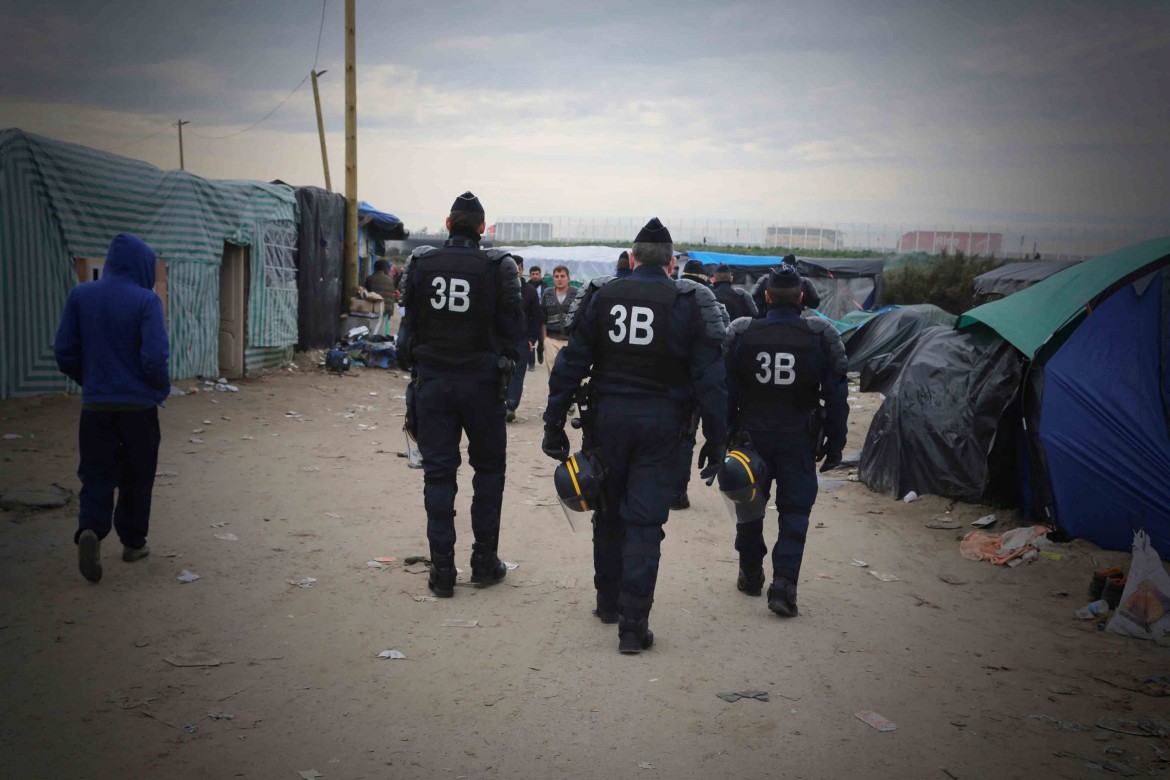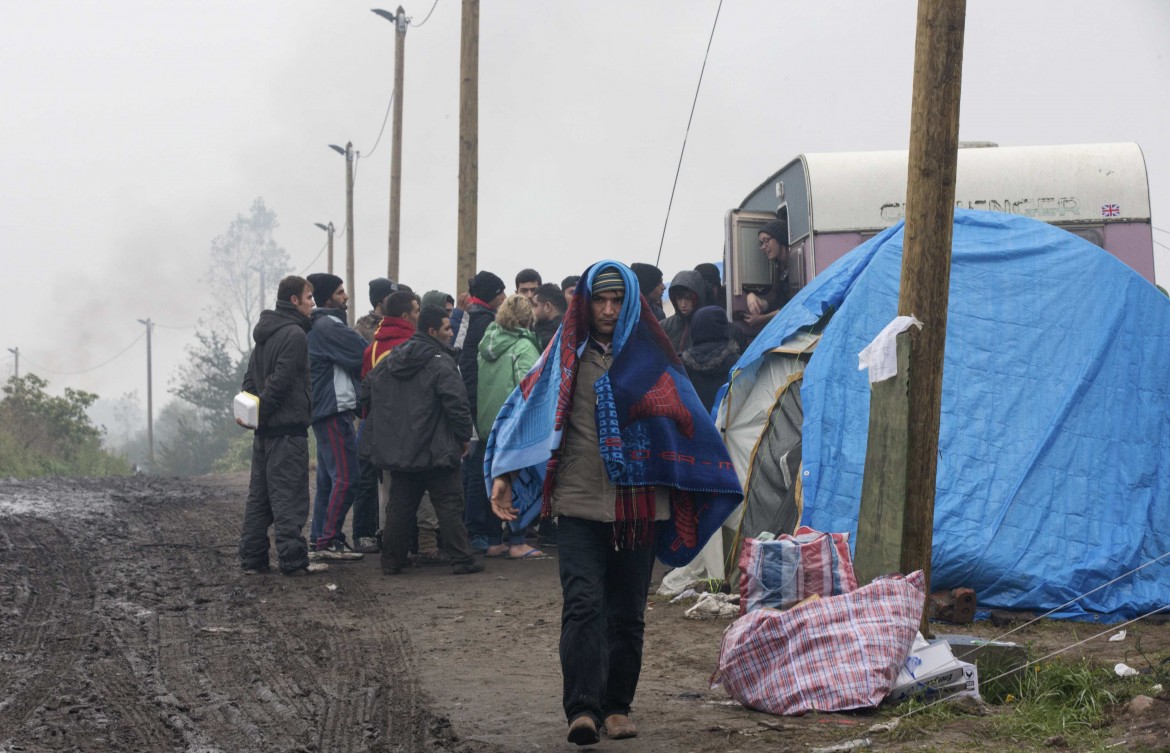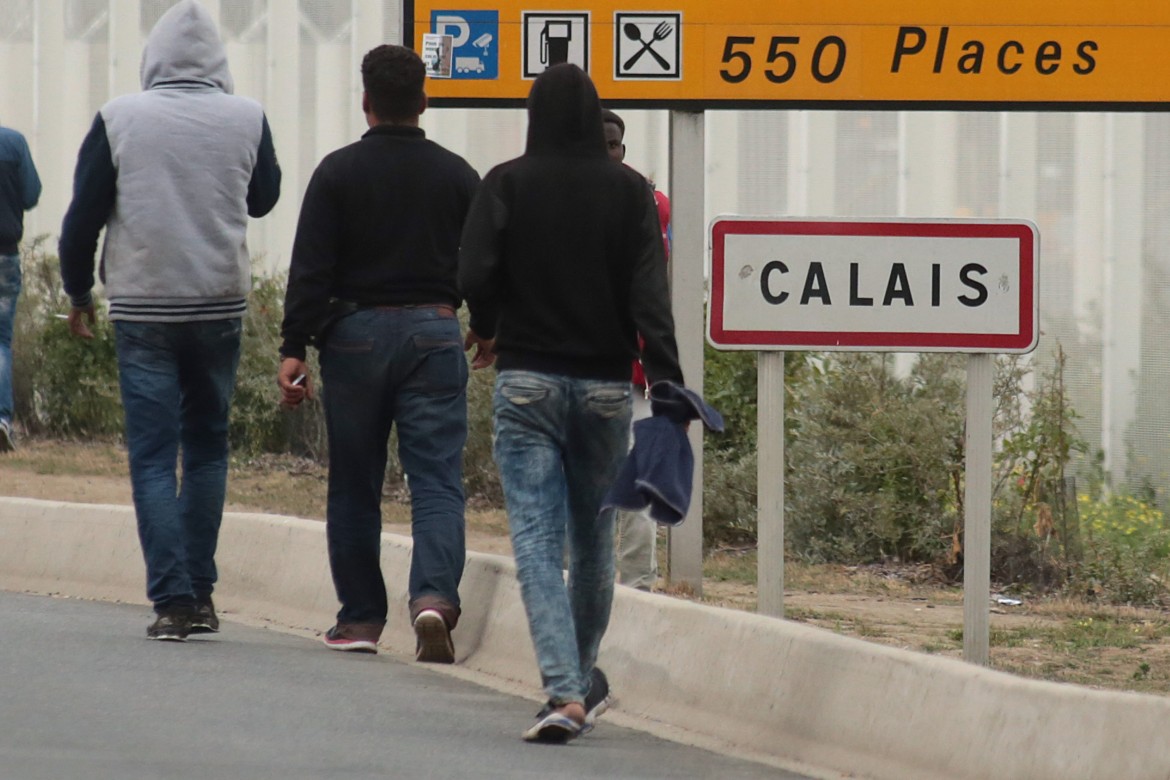The Jungle: Life on the inter-ethnic frontier of Calais
France In a dirty industrial zone, near the entrance to the Channel Tunnel, some 8,000 refugees and migrants are turning a temporary camp into a city with restaurants, nightclubs and churches. This is the Jungle.

France In a dirty industrial zone, near the entrance to the Channel Tunnel, some 8,000 refugees and migrants are turning a temporary camp into a city with restaurants, nightclubs and churches. This is the Jungle.
They call it the Jungle of Calais, the newest “city” in France. It’s located on the northeast side of town, not far from England and Belgium, sitting on a marshland a kilometer long and 500 meters wide near the sea. At the beginning, it hosted 2,000 people from different countries of Europe, Asia and Africa. In a few months, this colony has become the third most populous agglomeration in Calais. The French authorities estimate that, by Oct. 24, the Jungle was home for 8,000 residents.
“The inhabitants of the Jungle have fled from countries in conflict or from oppressive and unjust economic systems,” says Hassan, a refugee from Darfur, where he studied languages. Now, he hopes to resume his studies in London or Manchester soon.
Gani is from Kosovo. He has lived here four months. He is very confident and walks on two crutches. “I broke my right leg falling from a train linking Paris to London,” he said in perfect French. “I know it’s dangerous, but I’ll try again as soon as possible, because there is no work in Kosovo and I really like England,” he says proudly after giving me his business card, which lists his address as Prishtine Hotel Jungle.
The Jungle is the refugee camp Mayor Natacha Bouchart created in the outskirts of Calais last April. The goal was to concentrate all the migrants fleeing hunger, wars and economic imbalances in a single unutilized area, far away from the town and the tourist center. The land was vacant for two reasons: It is a designated ecological and wildlife zone, supposedly an untouchable protected area; at the same time, the Jungle is located in a Seveso area that is considered at risk for the presence of two companies, Interor and Synthexim, producing highly toxic and hazardous chemicals. The refugees and migrants are not allowed to camp anywhere else.
“There, they do not bother anyone,” says a restaurant owner who works in the main square of Calais. “And now the city is cleaner.”
Controls at the Channel Tunnel and the port
Since April, the city hasn’t seemed the same. It’s almost impossible to find an immigrant and all traces of their passage have been deleted. Yet, the tour operators keep complaining, claiming that the presence of migrants in the city cost them customers.
Yet almost every month since April, Interior Minister Bernard Cazeneuve has increased the police presence around the Channel Tunnel and the port. Very often, these police officers are from distant regions (Alsace and Île-de-France) and spend their transfers in hotels in the area. Additionally, many of those complaining hoteliers choose to forget that many wealthier refugee families (mainly Syrian) prefer to stay in hotels rather than in the Jungle, paying black market prices thanks to the complicity of the hotels themselves.
To get to the Jungle, you have to go through the port, enter the industrial zone and continue until six riot police trucks signal the west entrance. From here, we follow Muhamed, a young Iraqi who fled after the advance of ISIS. He is delighted to be able to talk to someone. In his hand he holds The Secret Adversary, an Agatha Christie novel. He picked it up at one of the many libraries in the Jungle, “so I can improve my English.”
He asks us to follow him to his tent, in the Iraqi area. The inhabitants of the Jungle have grouped by country of origin or ethnicity. The Iraqi “neighborhood” is mainly inhabited by Kurds. Whole families composed of grandparents, parents and young children. The lucky ones, those who still have a bit of money and those who settled more than a month ago, are living in shacks made of wood, plastic and fabric. All the rest must make do with a tent that in other contexts would delight campers and scouts.
Waiting for the smugglers
Muhamed, a 44-year-old mason, comes from a village near Mosul. He brought his whole family to Calais. “I would like to join my brother in England to start living again a quiet life and to give a future to my children.” He sips some tea waiting to be called by the passeur (the smuggler) to try to reach England, by hiding either in a car or in a truck that will embark on one of the many ferries direct to the white cliffs of Dover.
The Jungle is crossed by two main roads, north-south and west-east. Around these main streets, the Afghans have opened restaurants and shops. Dinner time is an opportunity to meet Ahmed, a 50-year-old cook born in Kabul who spent three years in Italy. After obtaining his visa, he worked for a catering company in Catania, Italy, for three years.
“Four months ago, I was fired and I was forced to leave to find work in England,” he tells us in Sicilian-accented Italian. “Then I came here to Calais. I saw the conditions in which people lived, and I decided to open a restaurant. I plan to stay eight or nine months and then return to Catania.”
From the outside, the place is anonymous. The improvised sheet metal, cardboard and wooden-planks structure hides a well-heated and illuminated space, thanks to a generator. On the right, there is a kitchen and a bulletin board with the menu: rice, meat, vegetables, chips, water, beer, tea and coffee are always available. A full meal costs an average of €3 per person. While we eat delicious rice accompanied by roast chicken, we observe the walls covered with cloth and colored fabrics with different prints and colors. On the street, you can buy food and electronics late into the night, at prices not so different from those available in the city.
Ethiopian nightclub
It’s Saturday night. The streets and restaurants are full of young people who want to have fun and release some stress. There is even a theater, from which you can hear the elegant sound of distant Iranian music.
“Tenaistellin! Demen andaru?” We could not find any Ethiopian restaurants, so we try to ask, in Amharic, three Addis Ababa boys where we can enjoy the authentic doro wat. We followed them for a few minutes until we got to an Ethiopian and Eritrean nightclub. The Ethiopians have chosen to focus on this kind of business. Indeed, their area is full of discos where you can find — in addition to music — alcohol, drugs and prostitutes.
The next morning, the Christian Ethiopians and Eritreans celebrated the anniversary of the arrival of Christianity to the Horn of Africa, and we were invited to the four-hour service in the main church, which ended at noon with a communal meal. The church is simple but elegant and functional, just as the other places of worship in the Jungle, like the Protestant churches and mosques.
“But what is the state really doing here?” asks Yoann, a young student who came from Paris to see the situation for himself. Cazeneuve, the interior minister, has announced that the police presence will be increased. In addition, “heated tents” will be distributed and the number of beds for women and children at the Jules Ferry day care center will be increased.
Since April, every day hundreds of volunteers from England, France and other countries make themselves available to try to improve the living conditions of the Jungle residents. Doctors Without Borders to Caritas are here. It is a true expression of solidarity by families who bring clothing, food, building materials; teachers who come to teach French; and even children who come to share their toys.
François studies languages in Lille and comes every weekend to organize language courses in the school next to the cinema. “One day, a friend of mine invited me to meet his Sudanese friends who lived here, and since then, I have never left,” says Marguerite, who organized a screening, of Charlie Chaplin’s film Modern Times, that was a great success.
Vans loaded with food and clothes arrive at all hours. Often, they are distributed without any plan, causing long lines and sometimes moments of tension and even violence. A waste management system is needed; trash is often burned causing black clouds of dioxin.
“We need central, coordinated management of all aid that civil society would like to give to these 8,000 desperate human beings,” says a frustrated Brussels retiree, who would like to distribute clothes and soap but has no idea how to move and where to go.
It’s Saturday night and, before going to the tent, we follow the light of a lamp inside the Ethiopian church. A man is stroking a canvas with a paintbrush. On the canvas, the traits of an angel piercing a demon with a spear begin to take shape. “I am an artist. I am a painter from Eritrea. I am the one who decorated the church.” This is how Paulos introduces himself. There are another 8,000 like him, another 8,000 stories, obscured by statistics and riot police. And the population of the Jungle increases.
I consigli di mema
Gli articoli dall'Archivio per approfondire questo argomento


